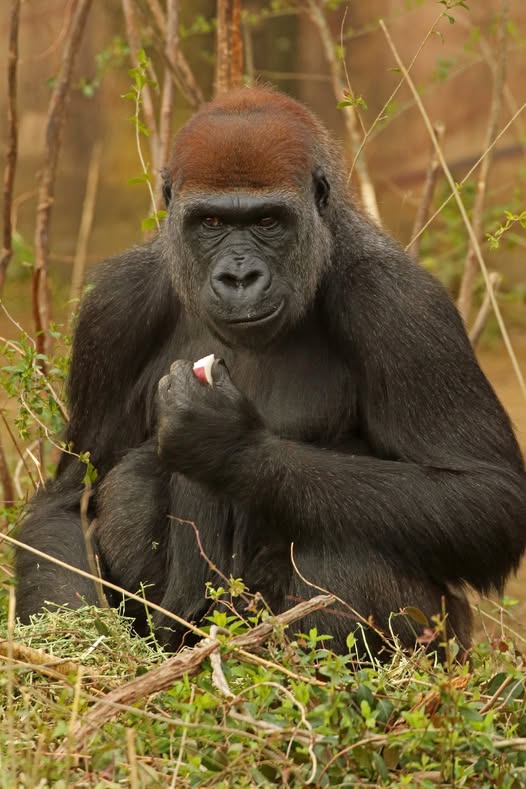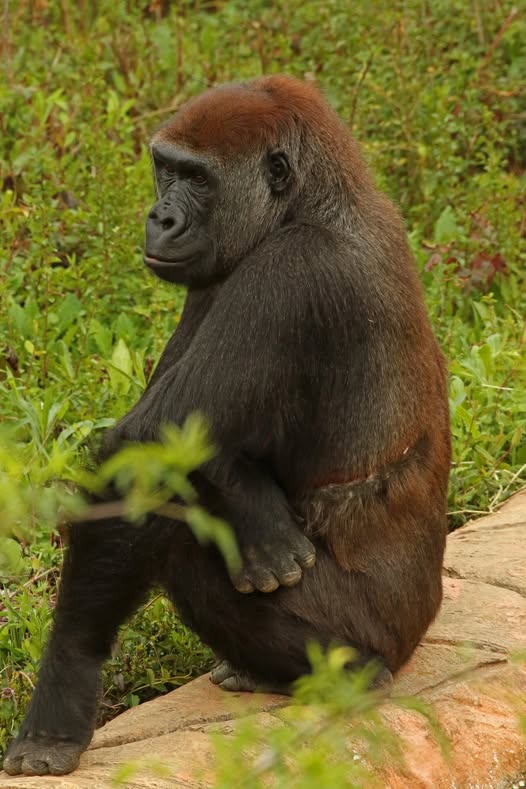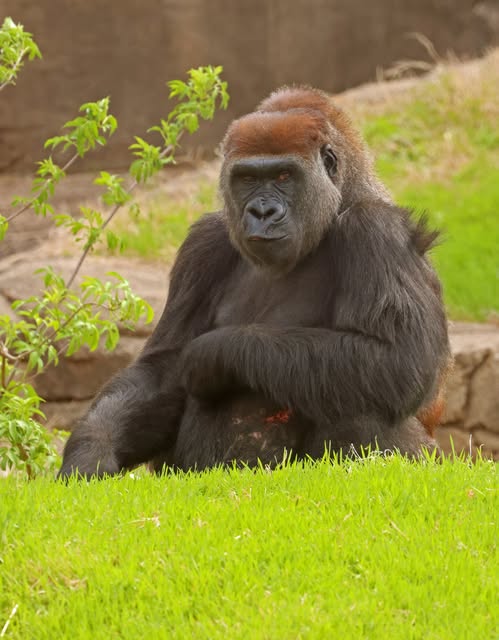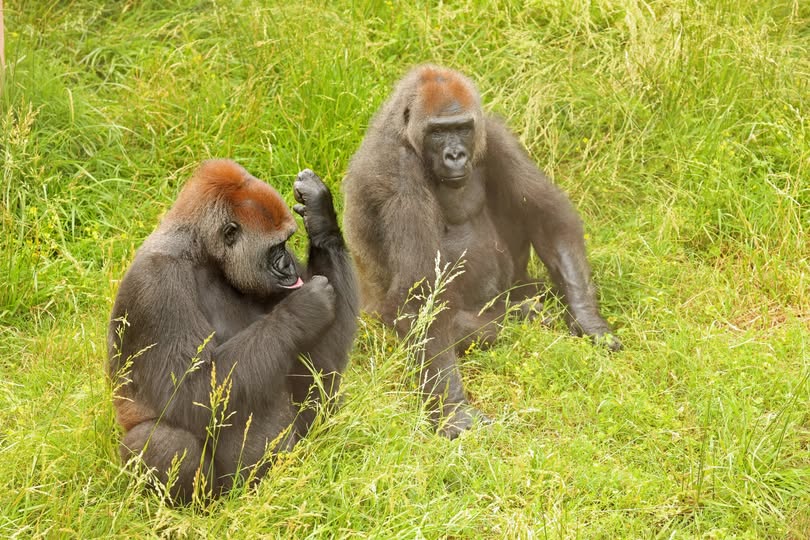
LITTLE ROCK (September 29, 2025)— If you’ve visited the Little Rock Zoo recently, you may have noticed Alice, one of our female gorillas. Alice joined us in 2021 from another accredited Zoo with a history of a leg injury and a recurring skin condition. Alice’s skin condition is marked by a red irritated band on her right side. It is often mistaken as an injury caused from a fight. Her move to Arkansas was made with the hope that a change in location and climate would help her skin, and over time, we’ve seen real improvements thanks to the dedication of her care teams.
Supporting Alice’s Health
Since her arrival, Alice has received exams, medical treatments, and a range of therapies to help manage her condition. Our team uses oral and topical methods, along with regular laser therapy, which has proven beneficial. Arkansas’s humid climate has also had a positive effect on her skin. While setbacks still happen, her care team continues to adapt her treatment to support her healing.
Prior to moving to Little Rock Zoo, she had a history of picking at her skin — a natural behavior gorillas do to help keep wounds clean. In Alice’s case, she would sometimes pick more than necessary. To help, keepers and veterinarians have worked with experts in gorilla care and even used behavioral observation projects to adjust how enrichment is offered, ensuring Alice stays engaged in healthy, stimulating activities and reduces this picking behavior.


Active Participation in Her Care
Animal Care Staff use positive reinforcement training, allowing Alice to be an active participant in her own health care. She takes part in at least two daily training sessions that allow staff to apply her topical treatments. She also receives enrichment at least twice a day in addition to her four daily meals. These sessions not only support her treatment but also give her opportunities to stay engaged, challenged, and comfortable.
Monitoring Her Leg Injury
Recently, Alice sustained an injury to her previously injured leg. After conducting an MRI, our veterinary team determined that the best approach was to give the injury time to heal, supported by minimal therapies, rather than moving straight to more invasive options. This plan has been working well — Alice has responded positively, continues to participate in training sessions with her care staff, and is steadily gaining strength. She remains under close observation and ongoing treatment from our veterinary team to ensure her continued progress.
Life in the Troop
Alice’s well-being is also shaped by the social dynamics of her troop. The birth of young Beni has shifted the troop’s structure, creating some challenges as the females establish new rankings. These natural social changes can be complex, but our team is committed to supporting Alice through them. Enrichment like browsable materials, shifting habits, and fostering her bond with troop mate Catherine all add novelty to her day and strengthen her place in the group.

Looking Ahead
We are grateful to Alice’s previous Zoo for entrusting her to us so we can continue her care. While managing her condition has challenges, Alice is doing well, displaying natural behaviors, and continuing to engage fully with her keepers, troop, and environment. Her journey is a testament to the dedication and collaboration of her care team — and to the Little Rock Zoo’s commitment to providing the highest standard of care for all of our animals.
Photos by Karen Caster



